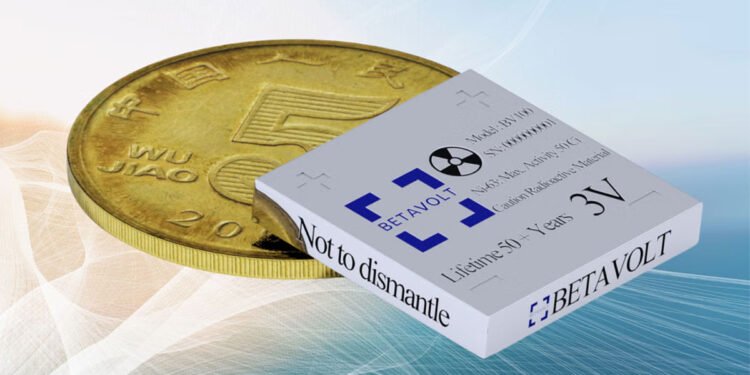A start-up in China has created a new battery that it claims can generate electricity for 50 years without the need for charging or maintenance. A report in The Independent, it’s a nuclear battery developed by Beijing-based Betavolt. And don’t imagine a massive size after reading the word “nuclear”. Betavolt has managed to squeeze 63 isotopes into that module that’s smaller than a coin, the outlet further said in its report. The company said it is the first battery in the world to realise the miniaturisation of atomic energy.
The next-generation battery is already being tested and will be mass produced for commercial applications like phones and drones.
“Betavolt atomic energy batteries can meet the needs of long-lasting power supply in multiple scenarios, such as aerospace, AI equipment, medical equipment, microprocessors, advanced sensors, small drones and micro-robots,” the company said in a press release.
“This new energy innovation will help China gain a leading edge in the new round of the AI technological revolution,” it further said.
The dimensions of the battery
It measures 15 x 15 x 5 millimetres and is made of wafer-thin layers of nuclear isotopes and diamond semiconductors, as per Futurism.
The nuclear battery currently generates 100 microwatts of power at 3 volts. However, the goal is to reach a 1-watt power output by 2025.
Betavolt said the radiation poses no danger to the human body, making it usable in medical devices such as pacemakers.
How does the battery work?
The technology used in the battery taps into the energy from decaying isotopes, a concept that was first explored in the 20th century. It then converts this energy into electricity.
China has been working towards miniaturising nuclear batteries under its 14th Five-Year Plan from 2021-2025.
The battery has a layered design, which will prevent it from catching fire or exploding due to sudden force. Betavolt also claimed that the battery is capable of working in temperatures ranging from -60 degrees Celsius to 120 degrees Celsius.
“Atomic energy batteries are environmentally friendly. After the decay period, the 63 isotopes turn into a stable isotope of copper, which is non-radioactive and does not pose any threat or pollution to the environment.
The mass production of the battery is expected to begin after the company completes testing and receives all the necessary clearances.

























